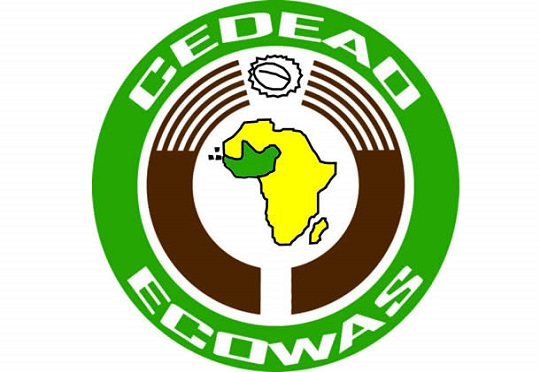ECOWAS urged to adopt term limits for presidents, heads of govt
The Centre for Democracy and Development (CDD) and other civil society organisations (CSOs) under the aegis of West Africa Democracy Network (WADEMOS), has urged the Economic Community of West African States (ECOWAS) to adopt term limits for presidents and other heads of government in the region to address tenure elongation and leadership crisis in West […]

The Centre for Democracy and Development (CDD) and other civil society organisations (CSOs) under the aegis of West Africa Democracy Network (WADEMOS), has urged the Economic Community of West African States (ECOWAS) to adopt term limits for presidents and other heads of government in the region to address tenure elongation and leadership crisis in West Africa.
They made the call on Saturday in Abuja at a roundtable organised by WADEMOS in collaboration with the International Citizens Movement Tournons La Page (TLP).
Their call was coming ahead of ECOWAS Summit of the Authority of Heads of State and Government scheduled to hold in Abuja on Sunday 10 December 2023.
They said that the call was imperative to strengthen democracy in the region and curtail crisis coming with tenure elongation or heads of state exerting long rules in their countries leading to coup detat and other crisis.
We’re working to capture 280,867 HIV people not on treatment – FG
FG commissions 6 TETFund projects in UNIZIK
The Network Coordinator, Paul Osei-Kuffour, said that 75 per cent of citizens in 34 African countries favour limiting presidential mandates to two terms, citing a research report.
He said that in West Africa, efforts to extend presidential terms had been more successful than unsuccessful, with the resulting elections won by the incumbent, especially in francophone countries.
“We aimed to mobilise relevant pro-democratic actors ahead of the Head-of-State conference to promote and emphasise CSOs’ position on the third-term, share and harmonise plans of action.
“It is also aimed at raising public awareness on the issue of the third term, its effect, impact challenges and opportunities and engage ECOWAS on the necessity to adopt a provision in the protocol on democracy and good governance,” Osei-Kuffour said.
Also, Director of Programmes and Policy Engagement, Centre for Democracy and Development Ghana (CDD-Ghana) and WADEMOS, Kojo Asante, said the roundtable was an effort to bring together prodemocracy forces in the sub region, to find solutions to the unconstitutional changes in government in the region.
“We are to discuss some of the democratic declines we have experienced in the sub region over the last 10 years, because people are frustrated by unconstitutional coups, people attempting term elongations. This triggered instability and violence, leading to military coups.
“These have always been a trigger for retrogression. We think it’s time for civil society itself and citizens to voice their support for these rules to be adopted by ECOWAS,’’ he said.
On her part, the WADEMOS Project Co-ordinator Francophone, Ms Marie Josiane-Ngah, said the meeting was part of the civic campaign to mobilise civic actors from West Africa to discuss and find strategies for a way forward, to influence tenure elongation.
She said, “After this meeting, we are supposed to continue to strengthen collaboration among CSOs, influencers, and other pro-democratic actors because we have activists, influencers who are committed to fight the institutionaliation of term limits.
“It is about us strengthening our cooperation and reinforcing the synergy so that we can have bigger impact both at the national level, international level. ECOWAS needs to hear our voice, that is why we are here in Nigeria.”
The Coordinator Front Togo Debout, Prof David Dosseh, said there was need to have the courage to work on the region’s democracy.
“Democracy may not be a perfect system but not as bad as other systems we have had in the regimes,” he said.
The President, National Trade Association in Nigeria (NANTS), Mr Ken Ukahoa, said it was worrisome that people elected their parliamentarians without checks and balances and which most times, were bought over by heads of state, thereby rubbishing democracy.
